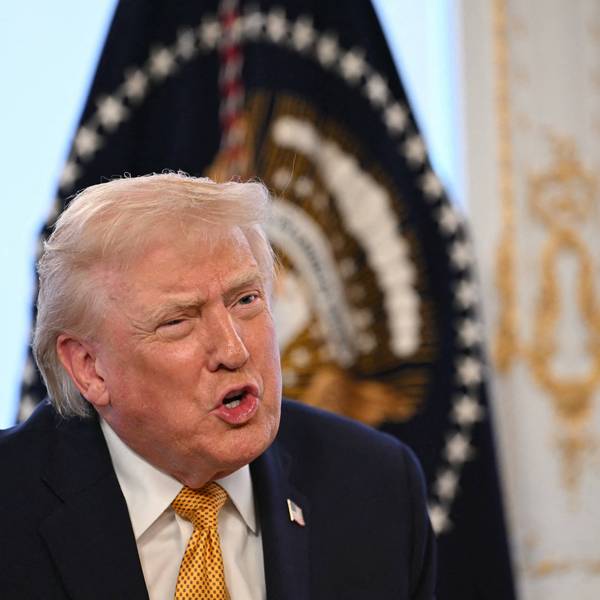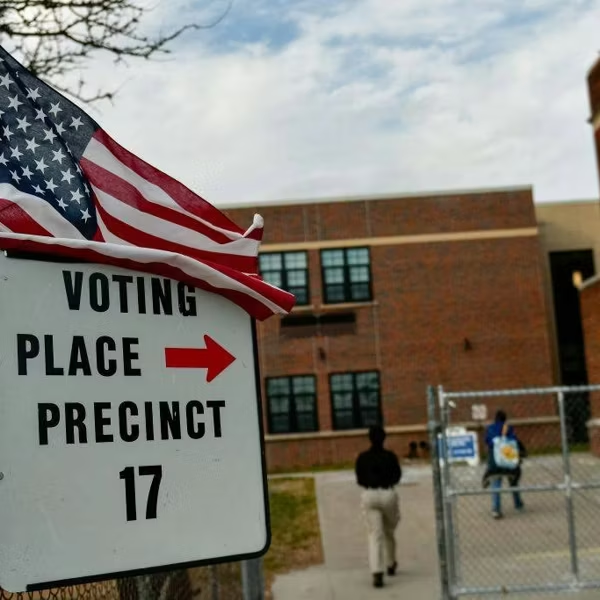As Americans rushed to the polls on Tuesday, voting rights watchdogs reported that this election day marked the most "unfair, confusing, and discriminatory election landscape" in fifty years.
Voters nationwide reported a slew of problems, including: long lines; broken machines; voter intimidation and misinformation; a lack of foreign language assistance; missing and misspelled names from registration; and general misinformation over registration, polling place locations, and identifications required.
"Every election day should be a celebration of democracy but instead what we are hearing today from too many polling places around the country is that voters are having problems casting their ballots," said Barbara Arnwine, President and Executive Director of the national Lawyers' Committee for Civil Rights Under Law, in a Tuesday afternoon press call. The Lawyers' Committee along with the Election Protection Coalition hosted a national hotline for individuals experiencing voting day difficulties.
Voting rights advocates say that these complaints come as no surprise following the Supreme Court's 2013 decision in Shelby County vs. Holder to abolish key voter protections from the Voting Rights Act.
Quoting Justice Ruth Bader Ginsburg's Shelby dissent (pdf) when she wrote that abolishing preclearance requirements "is like throwing away your umbrella in a rainstorm because you are not getting wet," Wade Henderson, president of the Leadership Conference on Civil and Human Rights, said Tuesday: "The storm is now raging with powerful micro-bursts denying citizens their unalienable right to democracy."
Since the Shelby decision was handed down, 14 states have made changes to their voting laws and, as Henderson notes, "we don't even know how many counties and towns."
Voting rights advocates have warned that these new rules would disproportionately impact student, minority, and elderly voters.
In Georgia, over 40,000 eligible voters who submitted their registrations months in advance on Tuesday discovered that their names were either still missing from the state's voter list or were never provided with any polling place information. Further, according to the coalition, the Georgia Secretary of State's website--which voters rely upon to verify their registration status and find their polling place--had been down for most of Tuesday morning while numerous counties' phone lines were overwhelmed, preventing voters from ever reaching their board of elections.
In Texas, which recently passed restrictive new voter ID laws, voters calling the hotline reported widespread confusion among poll workers over what constituted appropriate identification and, in many cases, voters said poll workers were exercising their own discretion over what they would accept.
Further, according to MSNBC, Texas "emailed counties Tuesday morning to inform them that the statewide voter registration system was down. According to Janice Evans, elections director for Brazoria County, it remained down at noon local time. That meant poll workers were unable to access information about a voter's registration status, likely leading many voters to have to cast provisional ballots."
MSNBC also reported that voters in Connecticut experienced a number of administrative issues. According to the the spokesman for the Connecticut Secretary of State, Av Harris, registration books did not arrive on time at 23 polling places, forcing the state to extend their voting hours.
According to the Election Protection Coalition, most of the hotline complaints came from Georgia, Florida, Texas, New York and California.
As voting rights advocates note, most of the reported issues are "unnecessary problems" and have to do with voter administration being "inconsistently applied." As Common Cause President Miles Rapport noted during a Tuesday press briefing, most of these voter impediments would be solved with the passage of same-day voter registration.
"No matter which party wins today, the right to vote and our democracy is taking a brutal and unacceptable beating."
--Wade Henderson, Leadership Conference on Civil and Human Rights
People are coming to the polls in larger numbers than in 2010, which he said was a "measure of the fact that people are tremendously interested in voting even with barriers put in their way."
Another critical issue being reported was the lack of foreign-language assistance provided either at the polls or in the days prior to the election. Further, Latino and Asian voters reported frequent misspelling of names on voter rolls and confusion among poll workers over a provision in the Voting Rights Act, which allows that non-English speaking voters bring someone of their choosing into the booth.
Arturo Vargas, executive director of the National Association of Latino Elected and Appointed Officials Educational Fund, noted that these voter impediments frequently occur in locations where minorities are a growing constituency. As a population becomes a "larger and larger electorate, you tend to see a backlash against the growing population and democratic presence," Vargas said.
Rights advocates say that it is now the "moral responsibility" of Congress to reinstate important voter protections to the Voting Rights Act and institute clear, simple voting guidelines.
"No matter which party wins today, the right to vote and our democracy is taking a brutal and unacceptable beating," Henderson concluded. "Today the real losers in this elections are the American voters. We must demand that Congress do its sworn duty to restore the Voting Rights Act. The integrity of American democracy demands nothing less."



